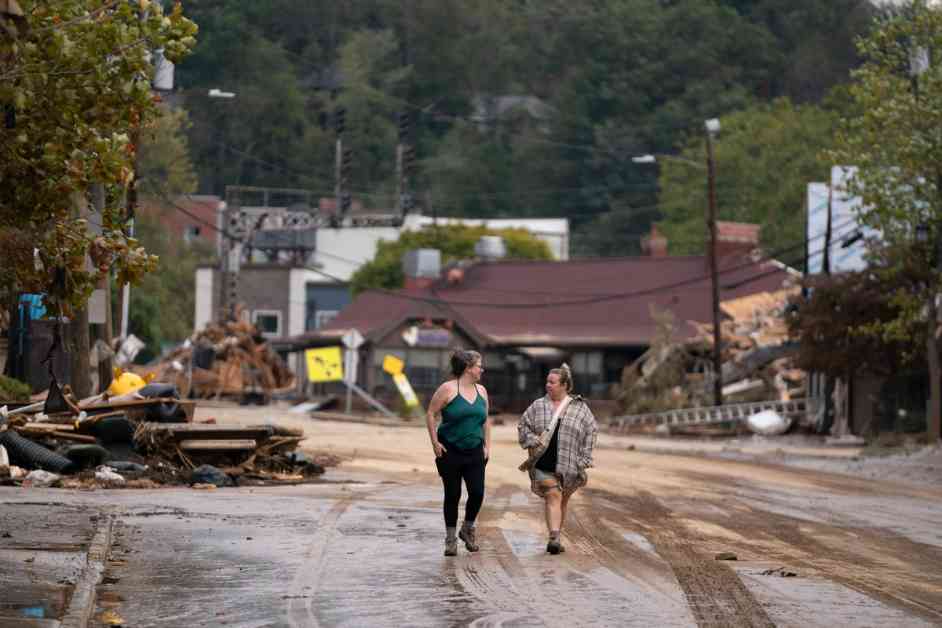Hurricane Helene has shattered the idea that there are areas immune to climate change, as shown by the damage in Asheville, North Carolina, a supposed climate haven. However, experts say climate is increasingly influencing people’s decisions on where to move. While no place is completely safe from extreme weather events, there are cities with lower risks depending on the type of disaster, influencing relocation choices.
Jesse Keenan, a professor at Tulane University, emphasizes that lower disaster risks, favorable weather, and affordable insurance costs, all influenced by local climate conditions, play a significant role in people’s decisions regarding relocation. While some cities are labeled as climate havens, Keenan highlights that no place is entirely immune to disasters. Some cities are becoming climate “receiving zones,” attracting people due to climate-related reasons.
Despite being frequently mentioned as a climate haven, Asheville has always had risks of flooding and fire, according to Kathie Dello, North Carolina’s state climatologist. Keenan’s research indicates that people are moving to cities like Asheville due to climate considerations, among other factors. Ocala, Florida, for example, is experiencing rapid growth because of its low flood risks and affordable insurance prices.
Climate is not the sole motivator for relocation, as family relationships and economic conditions also play a crucial role. Some areas with high disaster risks, like wildfires or hurricanes, still attract development and inbound migration. However, climate can be a significant factor for those choosing to move away from such areas. Research shows that climate risks influence migration patterns, with some regions experiencing declining population growth due to increased flood risks.
Personal interviews conducted by Keenan reveal that climate considerations, such as extreme heat in certain areas, can be a driving force for relocation. For instance, a couple moved from Sarasota, Florida, to San Francisco due to the unbearable heat, among other reasons. Local climate risks are essential even for those moving within the same city or county, as they impact decisions on where to live.
First Street’s climate risk analyses have become crucial for property buyers and renters, providing information on floods, wildfires, air quality, and more. Real estate companies like Zillow are incorporating climate risk data into property listings, reflecting the growing importance of climate considerations in housing decisions. While climate is a significant factor, it is not the only consideration when choosing a new home, as various push and pull factors influence relocation decisions.
In conclusion, climate is increasingly becoming a factor in people’s decisions on where to live, influenced by local climate risks and preferences related to weather conditions and disaster risks. While some areas may be perceived as climate havens, the reality is that no place is entirely immune to extreme weather events. As climate impacts intensify, the importance of considering climate risks in relocation decisions is likely to grow.










